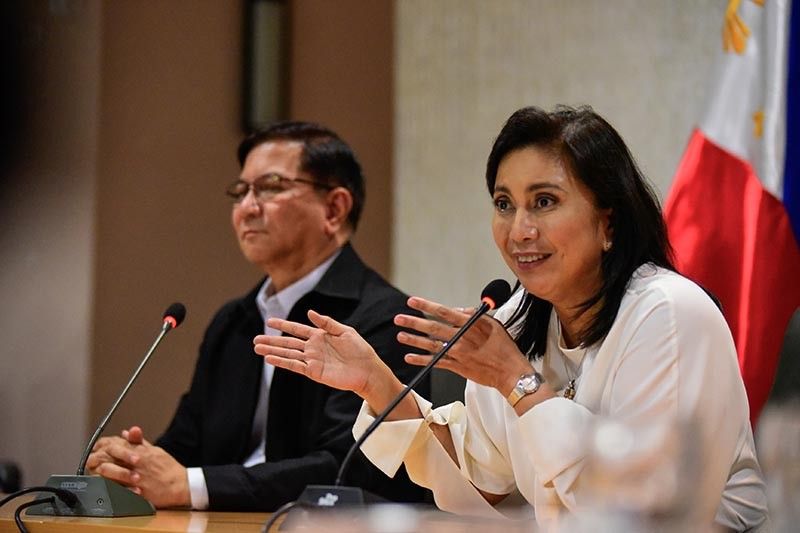Amid 'laglagan' fears, Robredo assures agencies she understands confidentiality

MANILA, Philippines — Vice President Leni Robredo assured the Department of the Interior and Local Government, an undersecretary of which said he is wary of sharing information with her on the campaign against illegal drugs, that she feels it has been doing a good job.
On her weekly radio show on Sunday, Robredo addressed apprehensions from agencies about sharing sensitive information with her, saying she knows she needs to keep sensitive information confidential.
"I think the DILG has been doing a good job with this. I don't think they are hiding anything," she said in Filipino. "I also understand what information cannot be divulged to media. If it's sensitive, then it shouldn't be divulged."
She acknowledged that DILG, as well as the Department of Health and the policy-making Dangerous Drugs Board have done a lot in the government's campaign against illegal drugs.
Local Government Undersecretary Ricojudge Echiverri earlier said that agencies are apprehensive about sharing information with Robredo, co-chair of the Inter-Agency Committee on Anti-Illegal Drugs, because she is a member of the opposition.
"What we are looking at is, is she really for real in helping us or looking into things that might be used against us?" Echiverri said on One News' "The Chiefs". In a separate interview on CNN Philippines, Echiverri said he hopes there would be no "laglagan"—a Filipino term for leaving someone out to dry—if the vice president gets information.
"The term 'laglagan' connotes there is something to hide. We just want to be as transparent as possible so the people know what is happening," Robredo said, stressing however that she "will not divulge sensitive information that will hurt the campaign."
Request for information from PDEA
She added that her request for the Philippine Drug Enforcement Agency to provide her information on high-value targets—a term used for big-time drug suspects—is for accountability and for her to be able to do her job.
Citing Executive Order 15 creating the ICAD, Robredo said among the functions of the ICAD is to "ensure the effective conduct of anti-illegal drug operations and arrest of high-value drug personalities down to the street-level peddlers and users."
She said it would be difficult to do this without the proper data.
"How do I ensure that when I don't even know who these are? How can I ensure that the HVTs are being arrested if I don't even know how many high-value targets there are? What is the status of efforts to go after the high-value targets? What information is available?"
She said, though, that that it is up to the member-agencies of the ICAD if they want to cooperate and that she would not force them to do so.
Robredo added that the request to PDEA was done privately in a letter to PDEA Director General Aaron Aquino, who has said that he does not understand why the vice president would need that information.
"We don’t agree to that because in the first place, she’s just a chairman of one committee. It is beyond her mandate to request for whatever list that I think has no purpose," Aquino, originally the lone chair of ICAD, said in a TV5 interview.
"They should just have said they don't want to give the information, but they went to the media about it," Robredo said.
"We didn't even announce that. It was a private communication, with copies furnished to the agencies. [We were asking] so we would have a database. Instead of responding to the letter, they responded through media."
President Rodrigo Duterte, who designated Robredo as co-chair of the ICAD, said Saturday that Robredo could lose her post at the inter-agency panel if she leaks sensitive information.
- Latest
- Trending
































